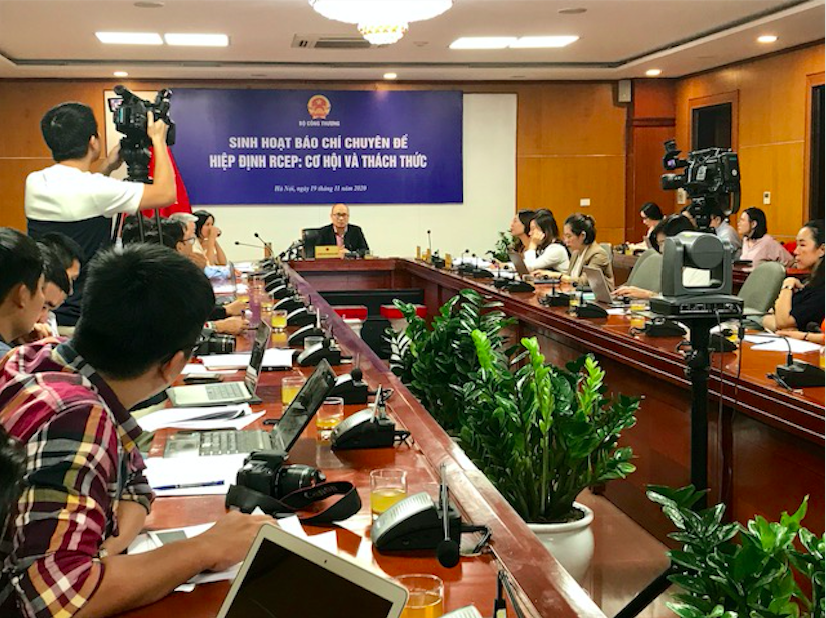Vietnam stands ready for competition from RCEP
Competition is part of any trade deal and Vietnam is used to competition as the country is a member of 13 free trade agreements so far.
Vietnam does not fear any competition arising from the Regional Comprehensive Economic Partnership (RCEP) as the country has already participated in free trade agreements (FTAs) with higher level of commitments compared to the RCEP, according to Luong Hoang Thai, director general of the Multilateral Trade Policy Department under the Ministry of Industry and Trade (MoIT).
| Overview of the press conference. Photo: Anh Ngoc |
For example, Vietnam already has a bilateral trade deal in place with Japan, a member country of the RCEP, while the Japan – ASEAN Free Trade Agreement and the Comprehensive Progressive Agreement of Trans Pacific Partnership (CPTPP) of which Vietnam is a member target a 100% elimination of import tariffs in a short period of time.
Pressure of competition from the RCEP on the economy is certain, but Vietnam has anticipated the issue as this is part of all trade deals, stated Mr. Thai at a press conference discussing challenges and opportunities from the RCEP held on November 19.
Meanwhile, for local enterprises to fully take advantage of the RCEP, they should first review all Vietnam’s commitments related to their fields of operation, including rules of origin, commitments on import duties and market access between Vietnam and other RCEP members, customs regulations and trade facilitation, among others, noted Mr. Thai.
Mr. Thai also suggested Vietnamese firms be prepared against potential negative impacts from the RCEP, especially competition from foreign peers right in the domestic ground.
To further support local enterprises in the RCEP, the MoIT has set up an action plan to promote the trade deal among the business community, especially small and medium enterprises. This would include training courses for enterprises to gain more understandings on the RCEP, as well as capacity building for firms to further integrate into regional and global value chains.
The MoIT through its network of chambers of commerce, information centers both in Vietnam and abroad would continue to provide updated information for local enterprises, Mr. Thai stressed.
Additionally, the MoIT would continue to set up programs helping firms to penetrate markets in the RCEP and protect Vietnamese products and customers against potential trade frauds or unfair trade practices.
After eight years of negotiations, the RCEP was signed at a virtual signing ceremony on November 15.
With the participation of China, South Korea, Japan, Australia, New Zealand and 10 ASEAN countries, the RCEP is a market of 2.2 billion people, or almost 30% of the world's population, and a combined GDP of US$26.2 trillion or about 30% of global GDP, and accounts for nearly 28% of global trade (based on 2019 figures).
The deal, however, does not include India, which dropped out of the negotiation process in November 2019.












